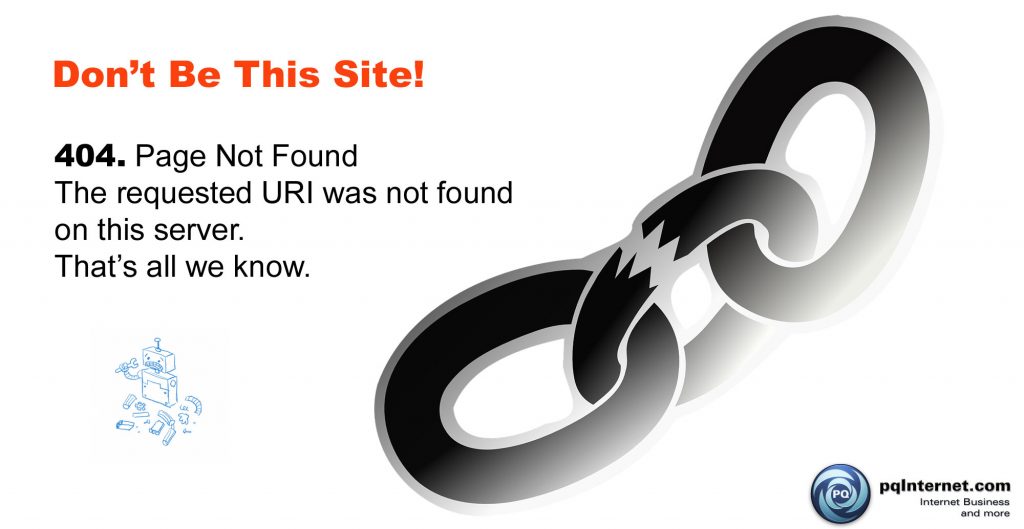
External links to your site are important for good search engine ranking. If they’re valid, organic, 1 way links from quality sites; it counts a lot towards getting your site to rank well.
The thing that a lot of people either don’t know, or overlook, is that internal site linking is critically important as well.
There are only a few ways search engines (and people) can find the content you work so hard to put on your site:
- Someone links to a page on your site, or your home page, from another website.
- People who land on a page on your site find other pages either from links in the content, or a menu structure, or category/archive type pages that link to content. They could have arrived on your site from a variety of means: a link, a link someone sent them in an email, someone told them, etc.
- A sitemap xml file that is submitted to search engines. This is not a sitemap for human readers, it lists all the content on your site and is consumed by search engines spiders as they crawl your site. If you have WordPress then there are plugins to do this.
Internal linking matters for actual human readers as much as, if not more than search engines (the exception would be if you don’t have a valid, accurate sitemap xml file). I say this because if you link to other relevant content on your site you have the opportunity to keep a reader on your site longer and engaging them deeper.
What happens if after a webpage has been on your site for a while, you rename it, or something in the path to it, changing the URL? This could be renaming the page, or renaming a category, etc. Any existing links to that page no longer work. This includes search engines too – they’re not magical, although it seems like it at times because they’ve become so good at finding content and getting the results you want when searching. This will result in search engines registering errors for your site and reducing how well your content ranks.
What should you do to fix it?
- You should add a 301 redirect so that other sites (namely search engines) will know the page has been permanently renamed/moved to this new URL, and so that all links to the old URL don’t return a 404 page not found error, but instead land on the new page. If you have WordPress, there are plugins that you can use to easily enter the old and new URLs and they will handle the 301 redirect.
- You should also search your website for internal links that linked to the old URL and update them to the new URL. Yes, the redirect you created above will work, but there are 3 reasons you absolutely need to do this:
- It’s just sloppy if you don’t.
- Search engines may interpret internal site link redirects as some type of SEO manipulation and penalize you, and
- Search engines may not catalog the inter-site link that was redirected since it went through a redirect.
Fixing this is not hard, just time consuming as you need to search and find all the internal links. One page isn’t bad, but fixing 100 URL changes gets old fast.
Also include in this site area of site maintenance removing pages and categories, etc.. Anything that affects a URL that another website may have linked to or a search engine indexed needs to be handled cleanly. This means if you removed a category, or renamed a category and that category was part of the URL, then you need to make 301 redirects from the now nonexistent URL to the new URL. If the page was completely removed, I usually create a redirect from the now nonexistent URL to the homepage, or category page that makes sense.
Cleanliness matters because loose untied ends lead nowhere and will kill your SEO efforts.
Learn more about Search Engine Optimization here, including more on internal site structure for SEO.
Until next time,
Fred

 [addtoany]
[addtoany]